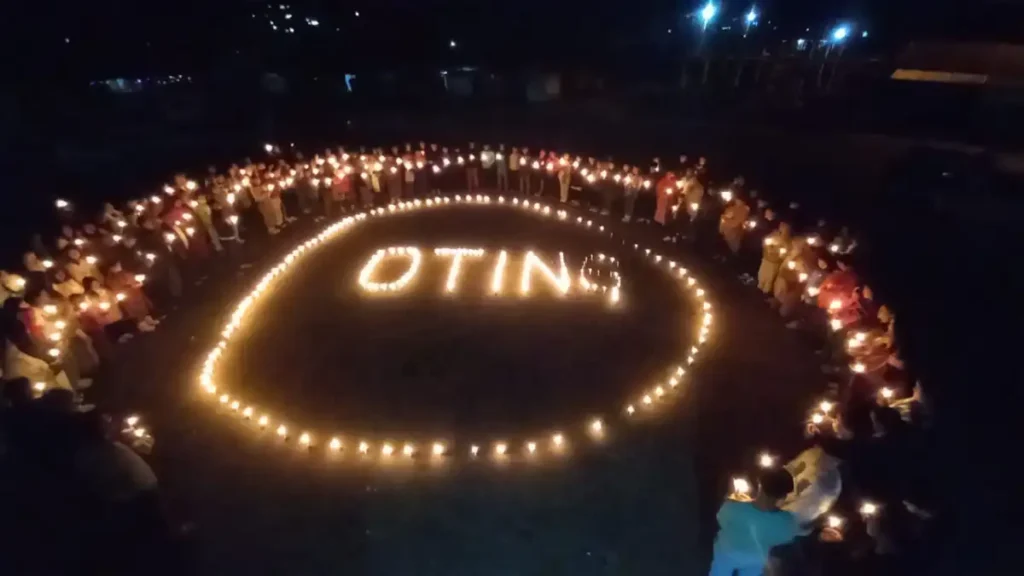In a major turn of events, the Global Naga Forum has formally objected to the Supreme Court’s ruling concerning the Oting killings, a tragic incident that shook the northeastern state of Nagaland, India. The forum’s objection is rooted in their demand for accountability and justice for the victims.
On December 4, 2021, a tragic case of mistaken identity resulted in the deaths of 14 civilians in the Oting village of Nagaland’s Mon district. The victims were part of a group returning home after a day’s work when they were fired upon by security forces, who mistook them for insurgents. This incident not only ignited local outrage but also raised pressing questions about the conduct of security operations in conflict zones and the protection of civilian lives.
In the wake of the incident, widespread protests erupted across Nagaland, demanding justice for the victims and accountability from the authorities. The Oting killings highlighted long-standing issues related to the Armed Forces (Special Powers) Act (AFSPA), which grants special powers to armed forces in conflict areas and has been criticized for enabling human rights abuses.
The Supreme Court’s Ruling
In response to public outcry and various petitions seeking justice, the Supreme Court of India intervened. However, the court’s ruling has faced backlash from various quarters, including the Global Naga Forum. Critics argue that the ruling does not adequately address the need for a thorough investigation or accountability for those responsible for the killings.
The Supreme Court’s decision included recommendations for an inquiry, yet many believe it fell short of ensuring justice for the victims’ families. The forum’s objection highlights the perceived inadequacies of the ruling and the urgent need for a comprehensive review.
Global Naga Forum’s Objection
The Global Naga Forum, an advocacy group focused on human rights and justice in the northeastern region of India, has taken a strong stance against the Supreme Court’s ruling. In their objection, they assert that the court’s decision undermines the gravity of the situation and fails to meet the expectations of the affected families and the wider community.
The forum is particularly concerned about the lack of accountability for security personnel involved in the incident. They argue that without proper legal repercussions, similar incidents may occur in the future, perpetuating a cycle of violence and impunity.
In light of the Supreme Court’s ruling, the Global Naga Forum has called for a review petition. They are urging the court to reassess its decision and consider the broader implications of the Oting killings. Their plea emphasizes the need for justice not just for the victims but also for the fundamental rights of citizens living in conflict-affected areas.
The forum’s call for a review highlights the importance of an independent and impartial investigation into the killings. They argue that only through such measures can trust be restored between the local population and the authorities, paving the way for long-term peace and stability in the region.
The Oting killings and the subsequent Supreme Court ruling have far-reaching implications for human rights in India, especially in conflict zones like Nagaland. The situation raises critical questions about the accountability of armed forces, the protection of civilian lives, and the enforcement of human rights.
The Global Naga Forum’s objections reflect a growing demand for transparency and accountability in military operations. They underscore the need for legal reforms that prioritize human rights and provide mechanisms for redressal in cases of violence against civilians.
As the Global Naga Forum seeks to challenge the Supreme Court’s ruling on the Oting killings, the incident remains a stark reminder of the challenges faced by communities in conflict zones. The forum’s call for a review petition reflects a broader demand for justice, accountability, and the protection of human rights in India. As the legal battle unfolds, it is crucial for the authorities to heed the voices of the affected families and communities, ensuring that justice is served and such tragedies are not repeated.

